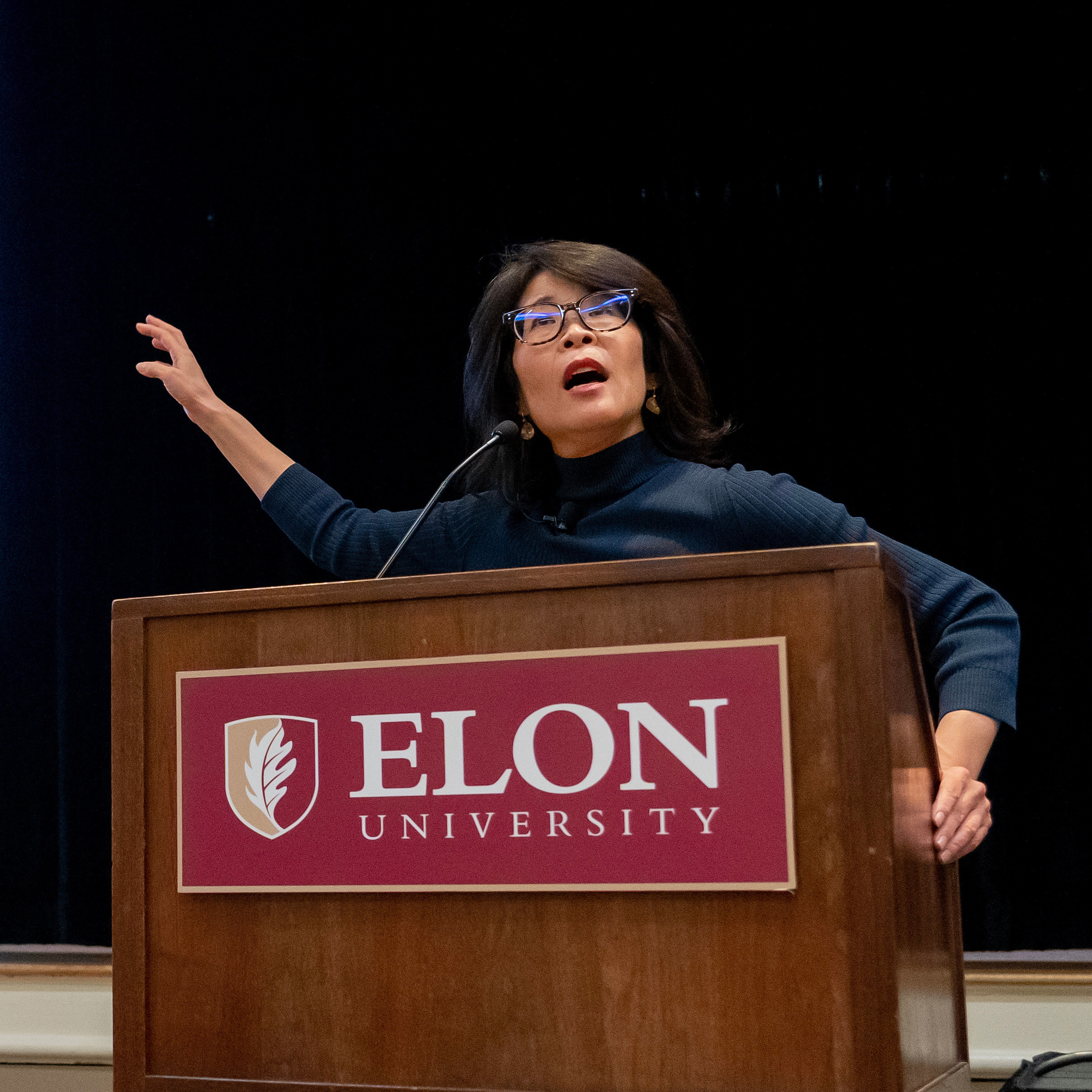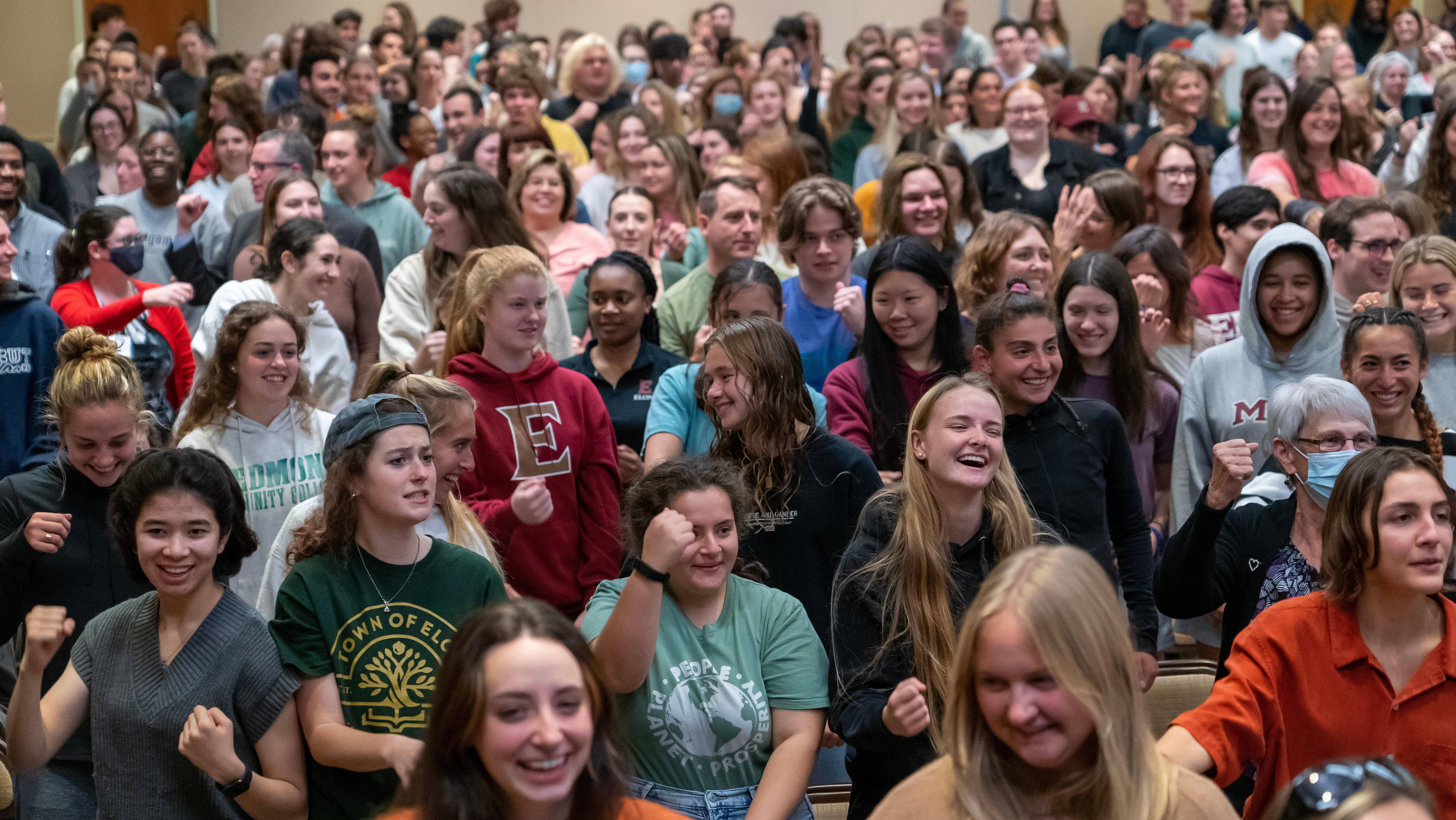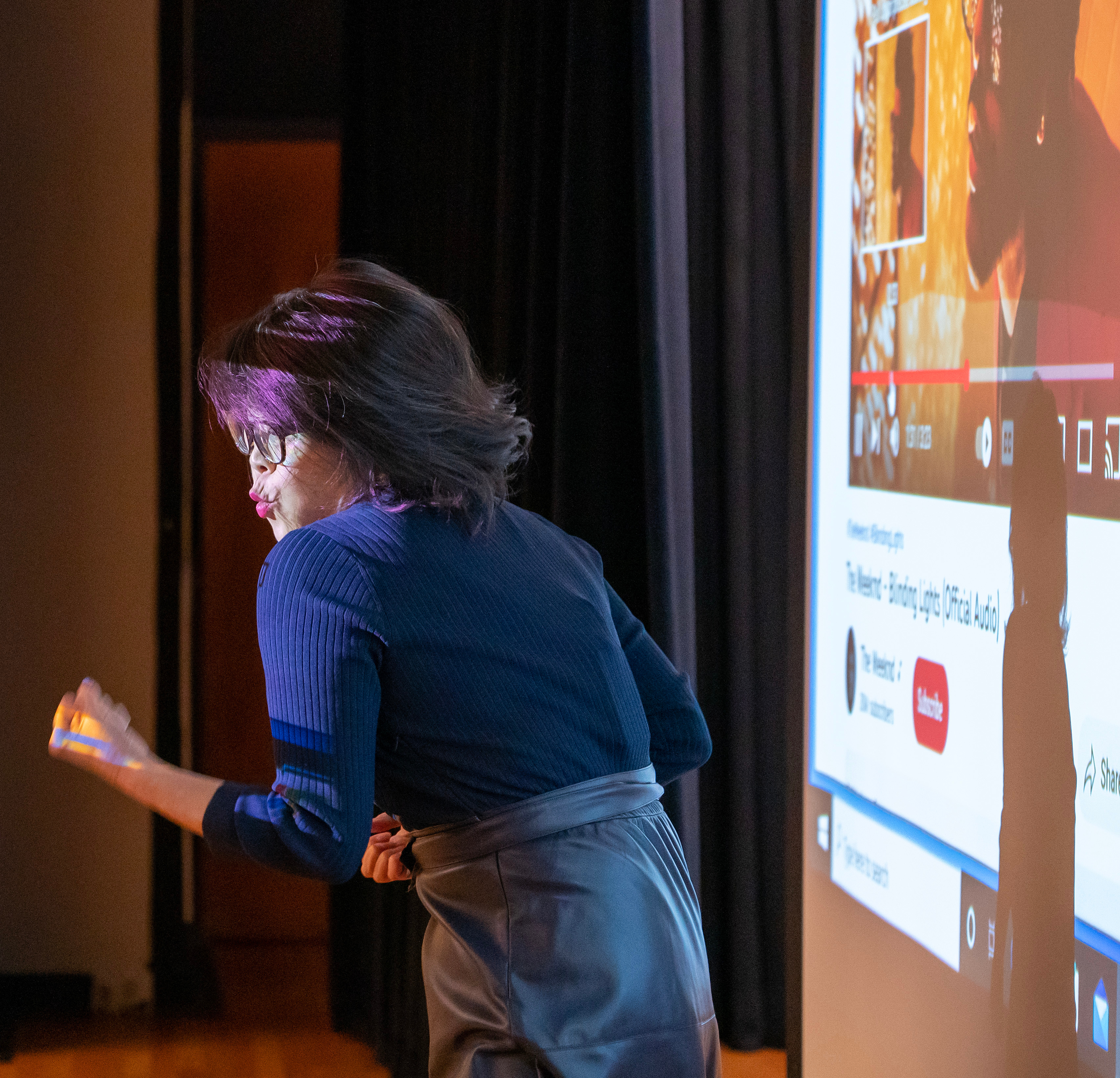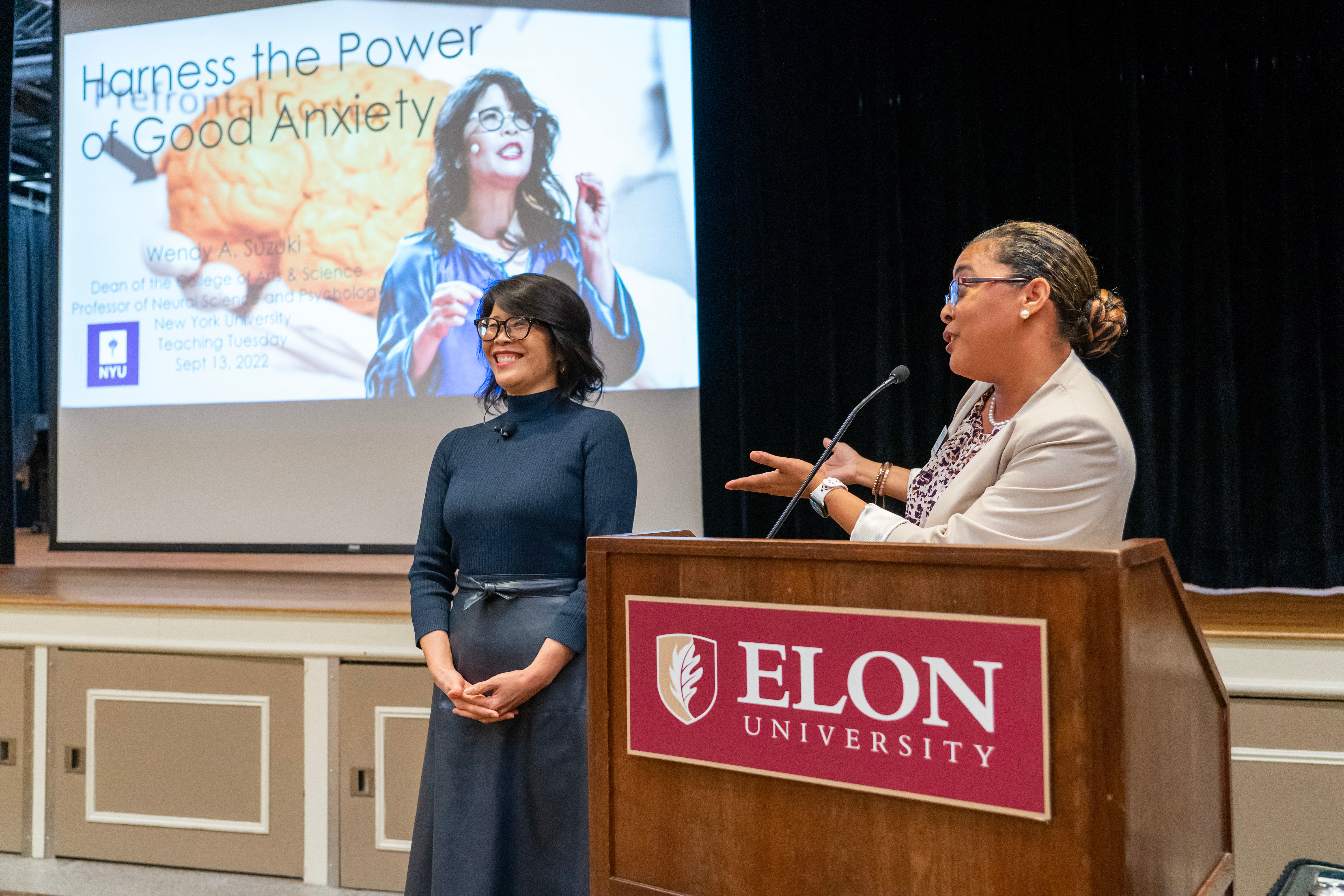Suzuki, professor at New York University and author of "Good Anxiety: Harnessing the Power of the Most Misunderstood Emotion," spoke with the Elon community during the Voices of Discovery Science Speaker Series on Tuesday, Nov. 1.
Navigating the COVID-19 pandemic during the last three years has come with increased anxiety, loneliness and a “hatred of Zoom,” said Wendy Suzuki, neural science and psychology professor at New York University, during her Voices of Discovery Science Speaker Series lecture. Even before the pandemic, Suzuki noticed that her students were experiencing higher anxiety than usual.

“I wanted to try and address this. But when I looked at myself, I realized it wasn’t just for the students. I was having a higher level of anxiety myself. So, it was really a self-examination,” Suzuki said. “An examination of all the courses that I was teaching, my neuroscience classes, my psychology classes, all that information was so helpful to help me deal with high levels of stress and anxiety.”
Suzuki, the author of “Good Anxiety: Harnessing the Power of the Most Misunderstood Emotion,” said that everyone deals with anxiety on varying levels. Suzuki focused her talk, which was also part of the university’s 2022-23 Speaker Series, on the everyday anxiety that most people have, as opposed to clinical levels of anxiety. Our first instinct is to eradicate any inkling of it, or worse, ignore it altogether. But neither are optimal responses, she said.
The key to unlocking the potential of anxiety work and having it work in your favor, Suzuki said, is understanding brain plasticity. Brain plasticity is the ability of the human brain to modify, rewire and change itself based on new information and experiences – both positive and negative. “You are all familiar with two of the most common examples of negative brain plasticity. This is chronic anxiety and chronic stress,” Suzuki said.
“But let me focus for the rest of the talk on … what are some best examples of positive brain plasticity. And what I hope to convince you of by the end of this talk is ‘good anxiety’ is also an example of positive brain plasticity,” she added.
She says that anxiety is good because evolutionarily, the emotion of anxiety and the underlying physiological stress response evolved to protect us. “Think about 2.5 million years ago … you’re walking around trying to get food and you hear a crack of a twig. That could mean a predator. It is protective and because that whole set of complex functions evolved, we are here today to have even more anxiety,” she said jokingly.
We experience increased anxiety because “the volume on our anxiety is turned way up and it’s turned way up all the time.” The first step to achieving good anxiety today, Suzuki said, is learning to turn down the volume on our anxiety.

She provided several tools to help ease anxiety, such as breathing exercises, shifting mindsets and exercising. Harping on the importance of exercise, Suzuki spoke about how exercising helped her during a stressful period when she began teaching at NYU. After regular exercising, her work improved and even on a biochemical level, her serotonin and dopamine levels increased, helping create new hippocampal brain cells.
Creating an interactive experience for the audience in real time to see the benefits of light exercise, she asked the audience to submit three words describing how they felt at the moment through an interactive presentation. The consensus of the responses described a lethargic and fatigued mood. Suzuki then asked the crowd to stand up, tell three strangers that they “have a beautiful brain” and then led the group in an “intenSati” workout to The Weeknd’s “Blinding Lights.” She polled the audience again after the two-minute power session, the results told a drastically different story.
“So, we went from tired and stressed to happy and energized. This is the power of movement,” Suzuki said.
The second step is to explore the uncomfortable emotions of worry, self-doubt, anger and fear and how they can be a valuable guide to learning more about ourselves. Brushing these feelings under the rug only allows them to fester and create bigger issues down the road. “If you normalize them … it makes it much more manageable. The point is, can those uncomfortable motions be a tool for you to learn about yourself and what you value,” she said.

Step three, and her favorite, of acquiring good anxiety is understanding the “superpowers” of anxiety and how it can generate positive outcomes. Suzuki shared three of the six anxiety superpowers from her book – the superpowers of productivity, flow and empathy.
Of those three, empathy is the one that she feels society could most benefit from. She encouraged the audience to think about their most common form of anxiety and recognize somebody else going through the same form of anxiety and show them some compassion.
“I love this one because I can’t think of anything that we need more in this world today than higher levels of empathy and compassion for each other,” she said. “I think in that way we can all go out into the world happier, healthier and with a lot more empathy and compassion for each other.”
The Voices of Discovery Speaker Series is an initiative from Elon College, the College of Arts and Sciences, that welcomes distinguished thought leaders and changemakers actively taking on society’s most pressing issues. Their bold ideas inspire our intellectual curiosity and challenge us to make a difference in the world.
The lecture was also part of the Elon University Speaker Series, presented by WUNC North Carolina Public Radio. This year’s speaker series explores the theme of “Living Well in a Changing World.”



